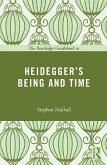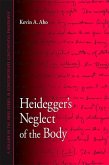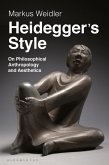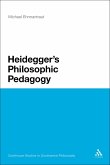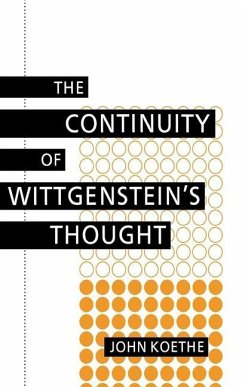In What Is Called Thinking, Martin Heidegger wrote, "Man speaks by being silent." Berel Lang demonstrates that Heidegger's own silence spoke consciously and deliberately in response to what has been called the "Jewish Question." Posed simply, the Jewish Question, as it gained currency in the nineteenth and the first half of the twentieth centuries, asked how (or if) the Jews were to live among the nations. The Holocaust radically altered the significance of the Jewish Question and, still, the great philosopher did not speak.
Lang interrogates Heidegger's silence for its possible meanings. He asks: What does it tell us about someone who prided himself on his ability to think that Heidegger never felt compelled to address the Jewish Question or to respond to the Nazi genocide? Lang demonstrates that Heidegger's silence after the Holocaust had its foundation in his silence on the Jewish Question before its occurrence. That earlier silence, he suggests, was based in the conceptual and historical role Heidegger ascribed to the Volk and in particular to the German Volk. Heidegger's silence, Lang concludes, was thus not simply an expression of prejudice or of his public persona. It derived from his philosophical thought and becomes, therefore, a necessary consideration in assessing Heidegger as a thinker. In this context, Lang suggests, Heidegger's silence still speaks.
Lang interrogates Heidegger's silence for its possible meanings. He asks: What does it tell us about someone who prided himself on his ability to think that Heidegger never felt compelled to address the Jewish Question or to respond to the Nazi genocide? Lang demonstrates that Heidegger's silence after the Holocaust had its foundation in his silence on the Jewish Question before its occurrence. That earlier silence, he suggests, was based in the conceptual and historical role Heidegger ascribed to the Volk and in particular to the German Volk. Heidegger's silence, Lang concludes, was thus not simply an expression of prejudice or of his public persona. It derived from his philosophical thought and becomes, therefore, a necessary consideration in assessing Heidegger as a thinker. In this context, Lang suggests, Heidegger's silence still speaks.
Dieser Download kann aus rechtlichen Gründen nur mit Rechnungsadresse in A, D ausgeliefert werden.




